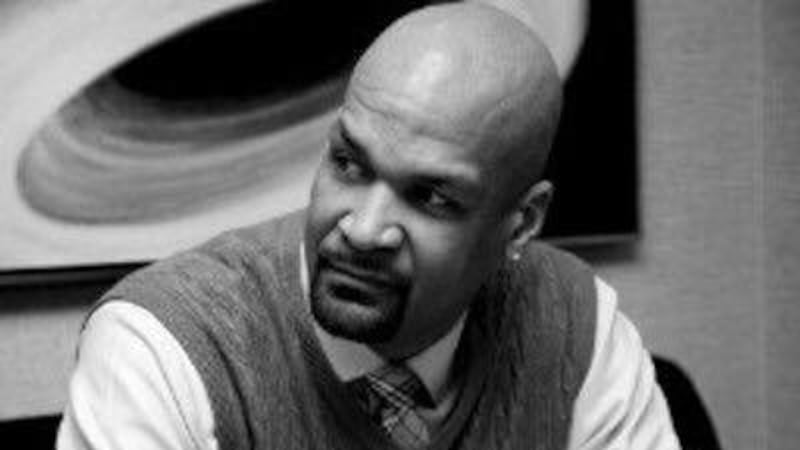Antonio Harvey doesn't think of himself as a Jail Blazer.
That's partly a question of timing. Harvey, 47, played for Portland from 1999 to 2001. Those were years when much of the most notorious roster in Blazers history—including Rasheed Wallace, Damon Stoudamire and Bonzi Wells—was being assembled. But Harvey left before arrests, fights and losses alienated the fan base.
Harvey, who played small forward, also takes issue with the nickname itself. He says it unfairly smears a tight-knit team of players with a few "bad apples"—and lumps serious crime together with young men who merely enjoyed smoking weed.
Harvey has an unusual vantage point for looking at Blazers and bud. In 2016, he founded Terra Mater Cannabis Company, a recreational marijuana farm in Canby, Ore. Shortly after he applied for a state license, he was dropped from the Trail Blazers' radio and television broadcasting team.
He talked with WW about that layoff, the Blazers teammates he feels were maligned, and the game he'd like to forget: blowing a 14-point fourth-quarter lead against the Los Angeles Lakers in 2000, just 10 minutes away from the NBA Finals.
WW: I'm sure you're familiar with the moniker "Jail Blazers." Does the term upset you?
Antonio Harvey: It's absolutely not fair. You got a 15-man roster; two guys get in trouble, and the entire roster is marked forever. You look at any office space in America, and if you can keep your bad apples down to 20 or 30 percent, people say you're doing all right—especially when you don't know what those people are doing when they leave the office. Yes, there were some troublemakers. But even the guys who were getting in trouble at that time, they were young guys. They were 18-, 19- and 20-year-olds. And we all got into a little bit of trouble at 18, 19, 20. Unfortunately, those guys had a huge platform.
Right after you left the team, a few of those guys got a bad rap around town. Was the fallout for Rasheed Wallace and Damon Stoudamire fair?
No. I don't know that either one of those guys did anything that 90 percent of Oregonians don't do anyway. You think about it, how many people in Oregon smoke cannabis? It's a high percentage. So really, what did Damon and Rasheed get in trouble for? They got in trouble for smoking weed. Well, everybody smokes weed in Oregon.
I don't even remember having a conversation with Damon or Rasheed about weed. Ever. I knew they did it from time to time—we all did it from time to time. Some more than others, but I don't remember either of those guys ever sitting around plotting on, "When am I going to get the next joint?" or "When's the next hit going to happen?" It wasn't like that.
The only time Sheed got in trouble for marijuana was driving back from a game in Seattle. But neither of them were driving, they were riding in the car and somebody else was driving—which is, when you think in the grand scheme, a responsible way to do it.
What memories stand out?
I'm blessed because of 23 years of great memories. If you asked me to put a finger on one, it would be impossible.
There was the game against the Lakers in the 2000 Western Conference Finals.
That's not a memory, that's a nightmare.
How often do you think about that?
How often do I think about Game 7 of the Western Conference Finals? Every time I run across a Trail Blazer fan over the age of 30. So when I'm out and about, I'm reminded quite often, unfortunately.
You were on the Blazers broadcasting team until 2016—when your cannabis company started. Did being asked to leave have anything to do with your business?
I don't know. They said it didn't, and I have no reason to believe anything other than that. The timing seemed a little weird, but the Trail Blazers said that cannabis had nothing to do with it, that they just wanted to go in a different direction.
Why did you get into the marijuana business?
It's a new adventure. I was in the same industry for basically 25 years. As a former athlete, I knew the benefits of cannabis and how it impacts the body relatively well. So given us being in Oregon, Oregon's liberal stance on the use of cannabis overall, I wanted to be, for lack of a better term, a trail blazer.
What's the shift from career athlete to where you are now been like?
When I was a player, I tried to play as hard as I could all the time, and that's kind of my outlook on this industry. Just go as hard as you can. Control the things you can control. I can control the quality of my flower, so I do. But in terms of controlling anything else, I've learned to just go with the flow and things seem to work themselves out.

